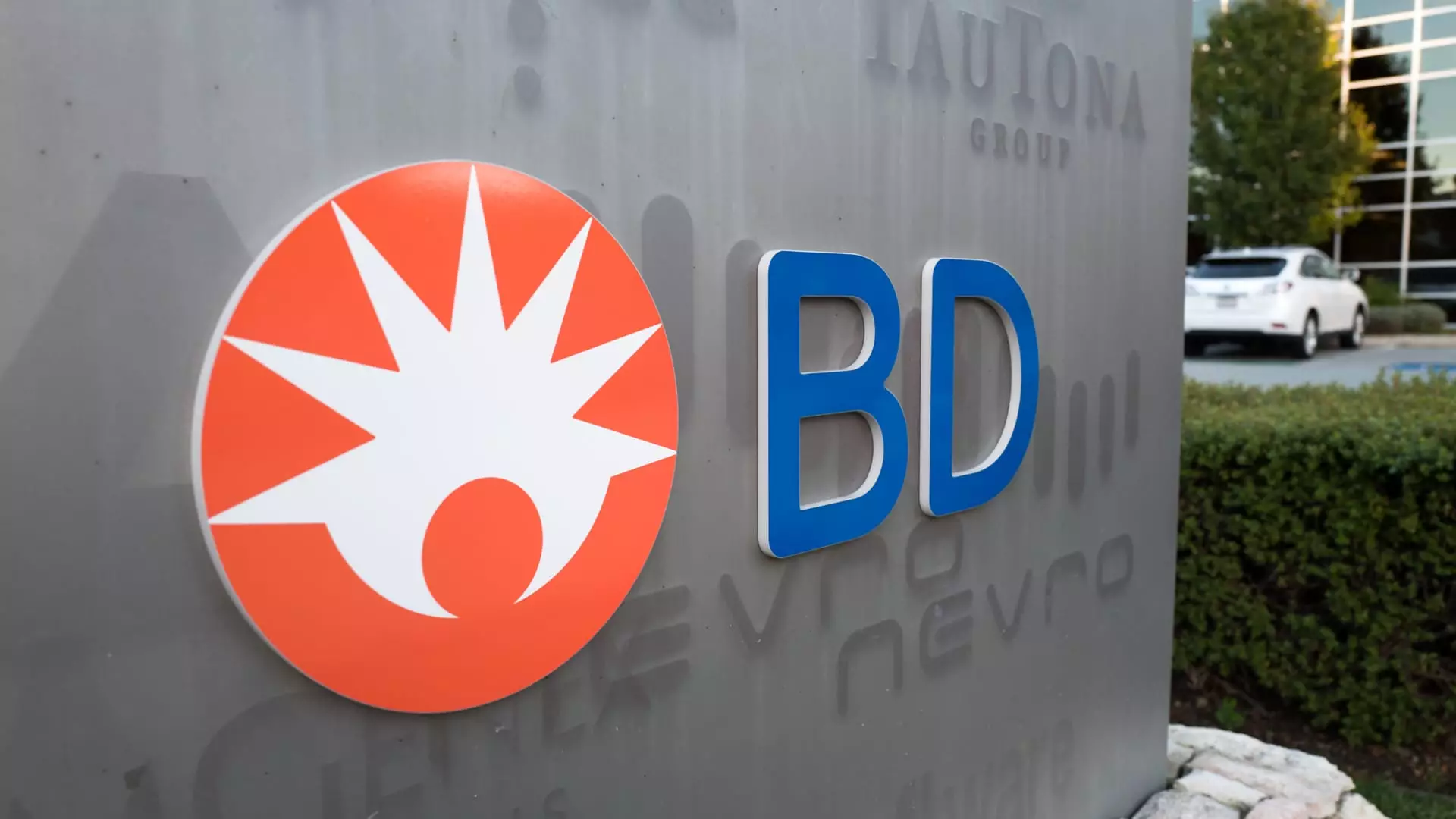Becton Dickinson (BDX) has established itself as a leader in the medical technology field, delivering a wide array of medical supplies and diagnostic products to healthcare institutions and professionals globally. With a market capitalization hovering around $66.65 billion, BDX operates at the intersection of life sciences and medical devices. The firm has two primary business segments: MedTech, which specializes in medication delivery and interventional procedures, and Life Sciences, which focuses on diagnostic solutions and specimen management. As a key player in the healthcare ecosystem, BDX is increasingly under scrutiny regarding its operational efficiency and growth strategy, particularly through the lens of activist investor Starboard Value, which has taken a substantial interest in the company.
Starboard Value is renowned for its transformative engagement with corporations, utilizing a blend of operational insight and strategic activism. The firm boasts a compelling track record, having achieved an average return of 32.96% across its 57 campaigns where it had a defined strategic approach, outpacing the Russell 2000. Specifically, in the healthcare sector, Starboard’s interventions have yielded returns averaging 17.65%, significantly higher than the sector’s general performance. In early February, Starboard announced its position in Becton Dickinson, advocating for the spin-off of the Life Sciences division to unlock significant shareholder value. This call to action reflects a growing trend among investors to advocate for corporate structural changes that can enhance operational focus and profitability.
The argument for separating Becton Dickinson’s two core divisions centers on their disparate growth trajectories and valuation metrics. The MedTech segment is characterized by a robust growth rate in the mid-single digits and currently generates $15.1 billion in revenue, with EBITDA of $6.7 billion. Conversely, Life Sciences lags behind, providing only $5.2 billion in revenue and $2 billion in EBITDA, reflecting a slower growth rate in the low single digits. The divergent dynamics of these segments suggest that they would be better positioned as independent entities, each able to tailor strategies and resources to their unique market challenges and opportunities.
Starboard’s analysis argues that the MedTech division, despite its lower valuation multiple (13x-14x EBITDA), is well-placed for growth fueled by trends in areas such as GLP-1 therapies. Meanwhile, Life Sciences, valued at over 20x EBITDA, enjoys a more stable niche in diagnostics and has less exposure to market volatilities that typically impact MedTech. Currently, despite its stronger income potential, the overall valuation of BDX is suppressed to 16.8x EBITDA, primarily reflecting the performance of its less lucrative segment.
The potential financial upside from separating the divisions is substantial. The distinct valuation for each entity, if spun off, could lead to a combined market value exceeding $110 billion—a figure that significantly benefits shareholders. Furthermore, creating two independent management teams could inspire a renewed focus on operational efficiency, innovation, and employee motivation within each specialized area. This would not only facilitate targeted growth strategies but also provide the agility and responsiveness necessary to thrive in their respective markets.
Reports estimate a valuation of around $30 billion for the Life Sciences business, lower than the anticipated valuation due to the possibility of retaining synergistic components with MedTech. However, the projected independence of Life Sciences could substantially elevate its valuation, given the anticipated investor interest in dedicated healthcare sectors.
Starboard Value’s influence in this situation cannot be overstated. Its historical success in eliciting corporate change makes it a formidable player in this narrative. However, BDX’s management appears receptive to the activist’s recommendations, signaling a potential alignment of strategy rather than a contentious battle over governance. Starboard’s approach aims not merely at board representation, but rather to guide BDX towards strategies that foster shareholder returns through well-considered divestitures.
The anticipated separation of Becton Dickinson’s businesses represents a pivotal moment for the company. The strategic analysis provided by Starboard offers a roadmap for enhancing shareholder value through operational realignment, focusing on the strengths of each division in a crowded healthcare market. As BDX contemplates this transformation, the discussions surrounding its future could define not only its growth trajectory but also its standing as a leading player in the medical technology landscape.

